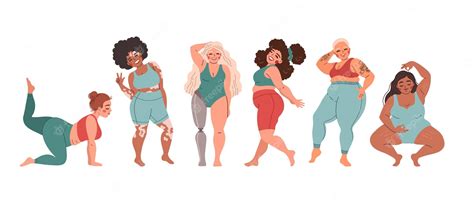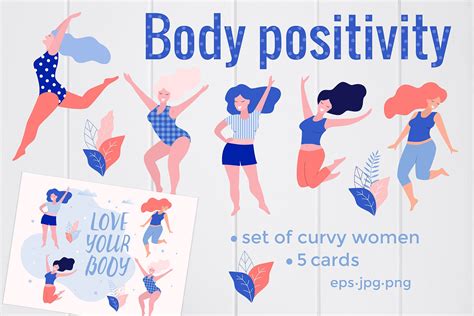
A mother is challenging societal norms by embracing her curves and personal style, defying critics who suggest mothers should adhere to restrictive fashion standards.
Alissa Bayee, a mother and content creator, is actively promoting body positivity and self-acceptance, particularly for women who feel pressured to conform to unrealistic beauty ideals after motherhood. Bayee uses her platform to showcase her fashion choices and lifestyle, demonstrating how women can confidently express themselves regardless of societal expectations or body type. “I think so many of us, especially moms, have been told we can’t do certain things or wear certain things,” Bayee stated. “I’m all about breaking those barriers.”
Bayee’s journey toward self-acceptance was not without its challenges. Like many women, she faced insecurities and external pressures to alter her appearance. However, she chose to prioritize her mental health and well-being by adopting a mindset of self-love and acceptance. She began to experiment with different styles, focusing on what made her feel confident and comfortable, rather than adhering to fleeting trends or the opinions of others. Her decision to showcase her authentic self online resonated with many women who shared similar experiences.
By sharing her experiences, Bayee aims to empower other women to embrace their bodies and personal style. She challenges the notion that mothers must sacrifice their individuality or conform to outdated fashion rules. “My style has evolved over the years, and I’ve learned to embrace my curves,” she explained. “I want other women to feel empowered to do the same.” Bayee emphasizes the importance of self-care, positive self-talk, and finding joy in expressing oneself through fashion. She encourages women to reject negative body image stereotypes and create their own definitions of beauty and style. Her advocacy focuses on promoting inclusivity and celebrating the diversity of women’s bodies.
Bayee’s efforts extend beyond personal styling to address broader issues of body shaming and the unrealistic expectations placed on women, especially mothers. She uses her platform to spark conversations about the pressures of postpartum bodies and the pervasive influence of social media on self-esteem. She stresses the importance of creating a supportive online community where women can share their stories, uplift one another, and find inspiration. Bayee believes that collective action and positive representation can help shift cultural attitudes and create a more inclusive environment for all women.
Her commitment to body positivity has earned her a significant following and positive feedback from women who feel inspired and validated by her message. Many express gratitude for her authenticity and willingness to challenge societal norms. Bayee’s work demonstrates the power of individual action and the potential for social media to be used as a tool for positive change.
In-Depth Analysis
Alissa Bayee’s stance against body shaming is a significant contribution to the body positivity movement, especially as it pertains to mothers who often face unique societal pressures. Her story illustrates a broader issue: the unrealistic and often contradictory expectations placed on women regarding their bodies, particularly after childbirth. These expectations are reinforced by media portrayals, advertising, and social norms, which can lead to feelings of inadequacy, anxiety, and low self-esteem among women.
The pressure to “bounce back” after pregnancy is a pervasive phenomenon. Celebrities and influencers often showcase their rapid weight loss and return to pre-pregnancy bodies, creating an unattainable standard for many women. This narrative ignores the natural physical changes that occur during and after pregnancy, as well as the diverse experiences of women’s bodies. Bayee’s advocacy counters this narrative by highlighting the beauty and strength of women’s bodies in their natural state.
Furthermore, Bayee challenges the idea that mothers must sacrifice their personal style or conform to a certain “mom” aesthetic. This notion often implies that mothers should dress conservatively, prioritize comfort over fashion, and abandon their pre-motherhood identities. Bayee argues that mothers can and should continue to express themselves through fashion and embrace their individuality. She believes that feeling good about oneself is essential for overall well-being and that personal style can be a powerful tool for self-expression and confidence.
The impact of social media on body image is another critical issue addressed by Bayee. Social media platforms are often filled with curated images and filtered realities, which can contribute to feelings of comparison and inadequacy. Women are constantly bombarded with images of “perfect” bodies and lifestyles, leading to unrealistic expectations and negative self-perception. Bayee’s authentic and unfiltered approach to social media provides a refreshing alternative. She shares her own experiences, struggles, and triumphs, creating a relatable and supportive space for women to connect and find inspiration.
Bayee’s work also underscores the importance of self-care and positive self-talk. She encourages women to prioritize their mental and physical well-being and to treat themselves with kindness and compassion. She advocates for practices such as mindful eating, exercise, and self-affirmations, which can help women cultivate a positive body image and build self-esteem.
Moreover, Bayee’s efforts highlight the power of community and collective action. By creating a supportive online community, she provides a space for women to share their stories, uplift one another, and challenge societal norms. This sense of community can be incredibly empowering, helping women to feel less alone in their struggles and more confident in their ability to advocate for change.
Background Information
The body positivity movement has gained significant momentum in recent years, fueled by social media and a growing awareness of the harmful effects of body shaming and unrealistic beauty standards. The movement aims to promote acceptance and appreciation of all body types, regardless of size, shape, race, gender, or ability. It challenges the notion that there is only one “ideal” body and advocates for inclusivity and diversity in media representation and advertising.
The history of body image and beauty standards is complex and intertwined with cultural, social, and economic factors. Throughout history, different body types have been considered fashionable or desirable, reflecting changing societal values and power dynamics. In the 20th century, the rise of mass media and advertising led to the widespread dissemination of narrow and often unattainable beauty standards, which have had a profound impact on women’s self-perception and mental health.
The body positivity movement emerged as a response to these harmful trends, seeking to challenge the dominance of the diet industry, the media’s focus on thinness, and the pervasive culture of body shaming. The movement has been instrumental in promoting size diversity in fashion and advertising, challenging weight stigma in healthcare, and advocating for policies that protect individuals from discrimination based on their body size.
However, the body positivity movement has also faced criticism and challenges. Some argue that it has been co-opted by commercial interests and that it has become too focused on surface-level acceptance rather than addressing deeper issues of social justice and inequality. Others argue that it promotes unhealthy lifestyles or that it ignores the health risks associated with obesity.
Despite these criticisms, the body positivity movement remains a powerful force for change, challenging harmful beauty standards and promoting self-acceptance and empowerment. Figures like Alissa Bayee play a crucial role in this movement by using their platforms to amplify marginalized voices, challenge societal norms, and inspire women to embrace their bodies and personal style.
Expanded Context
Alissa Bayee’s work exists within a broader cultural conversation about the representation of women in media and the impact of social media on mental health. The ongoing debate about body image and beauty standards highlights the need for more diverse and inclusive representation in all areas of society. This includes showcasing a wider range of body types, ages, races, and abilities in media, advertising, and fashion.
Furthermore, there is a growing recognition of the need for more critical media literacy education. This involves teaching individuals how to critically analyze media messages and understand the ways in which they can influence self-perception and behavior. Media literacy education can help individuals to develop a more discerning eye and to resist the pressure to conform to unrealistic beauty standards.
The mental health implications of body shaming and negative body image are also becoming increasingly recognized. Research has shown that body dissatisfaction can lead to a range of mental health problems, including anxiety, depression, eating disorders, and low self-esteem. It is essential to address these issues through increased access to mental health services and the promotion of positive body image messages.
In addition, there is a growing movement to challenge weight stigma in healthcare. Weight stigma refers to the negative attitudes and stereotypes associated with obesity, which can lead to discrimination and poor healthcare outcomes. Healthcare providers need to be trained to provide sensitive and respectful care to patients of all sizes, and to avoid making assumptions about their health based solely on their weight.
Finally, there is a need for policy changes to protect individuals from discrimination based on their body size. This includes enacting laws that prohibit discrimination in employment, housing, and other areas of life. Such policies can help to create a more equitable and inclusive society for all individuals, regardless of their body size.
Quotes from the Source Article:
- “I think so many of us, especially moms, have been told we can’t do certain things or wear certain things. I’m all about breaking those barriers.”
- “My style has evolved over the years, and I’ve learned to embrace my curves. I want other women to feel empowered to do the same.”
FAQ
1. What is the main message of Alissa Bayee’s advocacy?
Alissa Bayee advocates for body positivity and self-acceptance, particularly for mothers who often face pressure to conform to unrealistic beauty standards. She encourages women to embrace their curves and personal style, defying critics who suggest mothers should adhere to restrictive fashion rules. She challenges the notion that mothers must sacrifice their individuality or conform to outdated fashion rules.
2. What are some of the challenges that mothers face regarding body image?
Mothers often face pressure to “bounce back” after pregnancy, an unrealistic expectation fueled by media portrayals of celebrities and influencers. They may also feel pressured to sacrifice their personal style or conform to a certain “mom” aesthetic, which implies dressing conservatively and prioritizing comfort over fashion. Societal norms often dictate that mothers should prioritize their children’s needs over their own, leading to a neglect of self-care and personal expression.
3. How does Alissa Bayee use social media to promote body positivity?
Alissa Bayee uses social media to showcase her fashion choices and lifestyle, demonstrating how women can confidently express themselves regardless of societal expectations or body type. She shares her own experiences, struggles, and triumphs, creating a relatable and supportive space for women to connect and find inspiration. She aims to promote inclusivity and celebrate the diversity of women’s bodies.
4. What is the body positivity movement, and why is it important?
The body positivity movement aims to promote acceptance and appreciation of all body types, regardless of size, shape, race, gender, or ability. It challenges the notion that there is only one “ideal” body and advocates for inclusivity and diversity in media representation and advertising. It is important because it addresses the harmful effects of body shaming and unrealistic beauty standards, which can lead to mental health problems such as anxiety, depression, and eating disorders.
5. What can individuals do to combat negative body image and promote self-acceptance?
Individuals can combat negative body image by practicing self-care, engaging in positive self-talk, and challenging negative thoughts and beliefs about their bodies. They can also seek support from friends, family, or mental health professionals. It is important to be mindful of the media they consume and to seek out diverse and inclusive representation. Additionally, individuals can advocate for policy changes that protect individuals from discrimination based on their body size and promote body positivity in their communities.
Additional Facts and Context
- Studies have shown a direct correlation between exposure to unrealistic beauty standards in media and increased body dissatisfaction among women.
- The diet industry is a multi-billion dollar industry that profits from women’s insecurities about their bodies.
- Many social media platforms have begun to implement policies to address body shaming and promote positive body image.
- The body positivity movement has expanded to include activism and advocacy for marginalized communities, including people of color, LGBTQ+ individuals, and people with disabilities.
- There is a growing movement to challenge the use of filters and editing tools on social media, which can perpetuate unrealistic beauty standards.
Detailed Discussion of Bayee’s Impact and Strategies
Alissa Bayee’s impact extends beyond simply showcasing her personal style. She actively engages with her audience, responding to comments and messages, and creating a dialogue about body image and self-acceptance. This interaction fosters a sense of community and allows her followers to feel heard and understood. She also uses her platform to share resources and information about mental health and body positivity, further empowering her audience to take control of their own well-being.
One of Bayee’s key strategies is authenticity. She presents herself as she is, without filters or excessive editing. This raw honesty resonates with her followers, who appreciate her transparency and vulnerability. She acknowledges her own struggles with body image and self-doubt, making her message even more relatable and inspiring. She also highlights the importance of self-compassion, encouraging women to treat themselves with the same kindness and understanding that they would offer to a friend.
Another important aspect of Bayee’s advocacy is her focus on inclusivity. She recognizes that body image issues affect women of all shapes, sizes, races, and backgrounds, and she strives to create a space where everyone feels welcome and supported. She features diverse voices and perspectives on her platform, amplifying the experiences of marginalized communities and promoting a more inclusive vision of beauty.
Bayee also uses her platform to challenge harmful stereotypes and misconceptions about mothers. She demonstrates that mothers can be stylish, confident, and pursue their passions without sacrificing their responsibilities or compromising their identities. She showcases her own experiences as a mother, balancing her work, family, and personal life, and inspiring other women to do the same.
Furthermore, Bayee actively collaborates with other influencers and organizations to promote body positivity and self-acceptance. She participates in campaigns and initiatives that raise awareness about these issues and advocate for policy changes. She also uses her platform to promote brands and products that align with her values, supporting companies that prioritize inclusivity and ethical practices.
Addressing Criticisms and Counterarguments
While the body positivity movement has gained significant momentum, it has also faced criticism and counterarguments. Some argue that it has been co-opted by commercial interests and that it has become too focused on surface-level acceptance rather than addressing deeper issues of social justice and inequality. Others argue that it promotes unhealthy lifestyles or that it ignores the health risks associated with obesity.
It is important to acknowledge these criticisms and to engage in a nuanced discussion about the complexities of body image and self-acceptance. While it is essential to promote body positivity and to challenge harmful beauty standards, it is also important to recognize that health and well-being are paramount. The goal should be to create a society where individuals feel comfortable and confident in their bodies, regardless of their size or shape, while also prioritizing their physical and mental health.
Furthermore, it is important to address the underlying social and economic factors that contribute to body image issues. These include poverty, discrimination, and lack of access to healthcare and education. Addressing these issues is essential for creating a more equitable and just society where everyone has the opportunity to thrive.
In response to the criticism that the body positivity movement has been co-opted by commercial interests, it is important to be critical of the messages and images that are presented in advertising and media. Consumers should be aware of the potential for manipulation and should prioritize authenticity and inclusivity over superficiality.
Ultimately, the body positivity movement should be viewed as a starting point for a broader conversation about social justice and equality. It is important to challenge harmful beauty standards, promote self-acceptance, and advocate for policies that support the health and well-being of all individuals.
The Future of Body Positivity and Self-Acceptance
The body positivity movement is constantly evolving and adapting to the changing social and cultural landscape. As awareness of body image issues grows, there is a growing demand for more diverse and inclusive representation in all areas of society. This includes showcasing a wider range of body types, ages, races, genders, and abilities in media, advertising, and fashion.
Furthermore, there is a growing recognition of the need for more critical media literacy education. This involves teaching individuals how to critically analyze media messages and understand the ways in which they can influence self-perception and behavior. Media literacy education can help individuals to develop a more discerning eye and to resist the pressure to conform to unrealistic beauty standards.
The mental health implications of body shaming and negative body image are also becoming increasingly recognized. As more research is conducted on these issues, there will be a greater understanding of the ways in which body image can impact mental health and well-being. This will lead to increased access to mental health services and the promotion of positive body image messages.
In addition, there is a growing movement to challenge weight stigma in healthcare. Healthcare providers need to be trained to provide sensitive and respectful care to patients of all sizes, and to avoid making assumptions about their health based solely on their weight.
Finally, there is a need for policy changes to protect individuals from discrimination based on their body size. This includes enacting laws that prohibit discrimination in employment, housing, and other areas of life. Such policies can help to create a more equitable and inclusive society for all individuals, regardless of their body size.
Figures like Alissa Bayee will continue to play a crucial role in shaping the future of body positivity and self-acceptance. By using their platforms to amplify marginalized voices, challenge societal norms, and inspire women to embrace their bodies and personal style, they are contributing to a more inclusive and equitable world.









